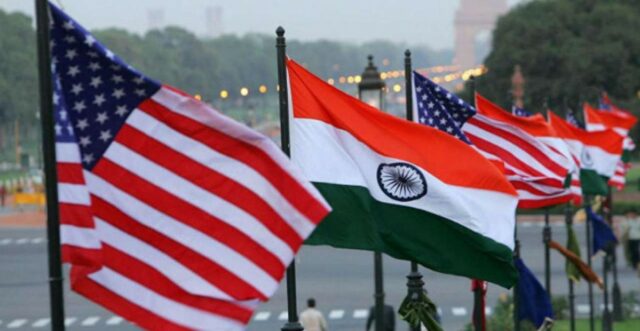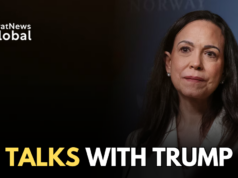The U.S. embassy in India has announced the revocation and denial of visas for several Indian business executives and corporate leaders over global fentanyl trafficking.
These individuals are alleged to be involved in the trafficking of precursor chemicals used in the manufacture of fentanyl, a synthetic opioid that is 50 times more potent than heroin and responsible for tens of thousands of deaths annually in the United States.
Citing sections 221(i), 212(a)(2)(C), and 214(b) of the Immigration and Nationality Act, U.S. authorities underscored the seriousness of the violations.
The crackdown extends not only to the executives but also to close family members, effectively blacklisting their access to U.S. soil. “Individuals and organisations involved in the illegal production and trafficking of drugs to the United States, along with their families, will face consequences,” said Chargé d’affaires Jorgan Andrews.
‘Grateful to Indian Govt’
“We are grateful to our counterparts in the Government of India for their close cooperation,” the U.S. Embassy stated, framing the action not as an indictment of India, but as a joint effort to counter a common threat.
U.S. investigators have traced the movement of precursor chemicals from Chinese manufacturers through Indian firms, ultimately landing in the hands of Mexican drug cartels.
Earlier this year, an Indian company, Rauxter Chemicals, was indicted for its alleged role in supplying fentanyl precursors to the U.S. Rauxter Chemicals’ senior executive Bhavesh Lathiya was arrested in New York in January, raising red flags in U.S.-India trade and diplomatic circles.
This latest visa revocation move appears to be part of a broader strategy under the Trump administration’s intensified efforts to tackle synthetic opioid trafficking at the source. The White House has prioritized border security, international enforcement and pressure on source countries as key pillars of its anti-drug policy.
The China Connection
Although the latest visa denials targeted Indian nationals, U.S. officials were careful to place the spotlight squarely on China, the global epicenter of fentanyl precursor production. According to a recent FBI report, China has enacted strict domestic controls on narcotics but is allegedly allowing, and even encouraging exports of precursor chemicals to destabilise foreign nations, particularly the United States.
The report, which includes statements from FBI Director Kash Patel, accuses the Chinese Communist Party (CCP) of orchestrating a deliberate campaign to smuggle fentanyl precursors through third countries, including India.
“This is not merely a public health crisis, it’s a geopolitical attack,” Patel said, calling on India to join hands with the U.S. in dismantling the China-linked narcotics web.
Fentanyl, often nicknamed “China White” due to its origin, has become a symbol of a modern-day chemical war, with U.S. authorities suggesting that Beijing is using narcotics as a weapon to weaken American society from within.





